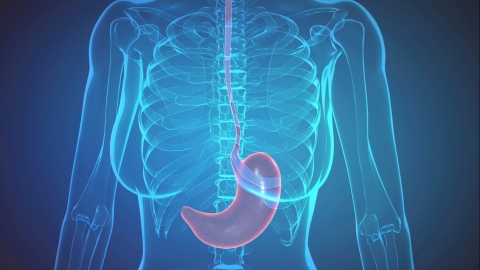What is the best way to take care of your stomach?
Generally speaking, there is no single best method for stomach care. Stomach-friendly practices include eating regular meals, chewing food thoroughly, quitting smoking and limiting alcohol consumption, maintaining a positive mood, and keeping the stomach area warm. Here is a detailed explanation:

1. Regular Eating Habits
Eating meals at regular times and in appropriate portions helps maintain the normal rhythm of the gastrointestinal tract. Try to keep consistent meal times each day, avoiding excessive hunger or overeating. For example, breakfast between 7-8 AM, lunch between 12-1 PM, and dinner between 6-7 PM. Eat until you are about 70-80% full to reduce the burden on the gastrointestinal system.
2. Chew Food Thoroughly and Eat Slowly
Proper chewing allows food to be partially digested in the mouth, reducing the digestive workload on the stomach. Additionally, chewing slowly stimulates saliva secretion, which contains enzymes like amylase that aid in food digestion.
3. Quit Smoking and Limit Alcohol Consumption
Quitting smoking and limiting alcohol intake are crucial for maintaining a healthy stomach. Harmful substances in tobacco, such as nicotine, irritate the stomach lining, increase gastric acid secretion, and damage the protective mucosal barrier. Alcohol directly injures the stomach lining, potentially leading to gastritis and peptic ulcers. Furthermore, excessive consumption of strong tea and coffee, which contain caffeine and theophylline, should be avoided as they may stimulate acid secretion and affect stomach health.
4. Maintain a Positive Mood
Long-term stress, anxiety, or depression may lead to autonomic nervous system dysfunction, affecting normal gastrointestinal motility and digestive juice secretion. It is important to learn effective stress-reduction techniques such as listening to music, exercising, or traveling to maintain a cheerful mood, which benefits normal stomach function.
5. Keep the Stomach Area Warm
The stomach is sensitive to temperature changes, and exposure to cold can cause gastrointestinal spasms, leading to discomfort such as stomach pain and bloating. During colder seasons, wear appropriate clothing to keep the abdomen warm; in summer, avoid prolonged exposure to air conditioning and excessive consumption of cold foods to prevent stomach chilling.
In daily life, it is also important to undergo regular medical check-ups to monitor stomach health and detect any issues early for timely treatment. Moreover, avoid misuse of medications, especially those that can irritate the stomach lining, such as nonsteroidal anti-inflammatory drugs (NSAIDs). If medication is necessary, it should be taken under a doctor's guidance to minimize harm to the stomach.






